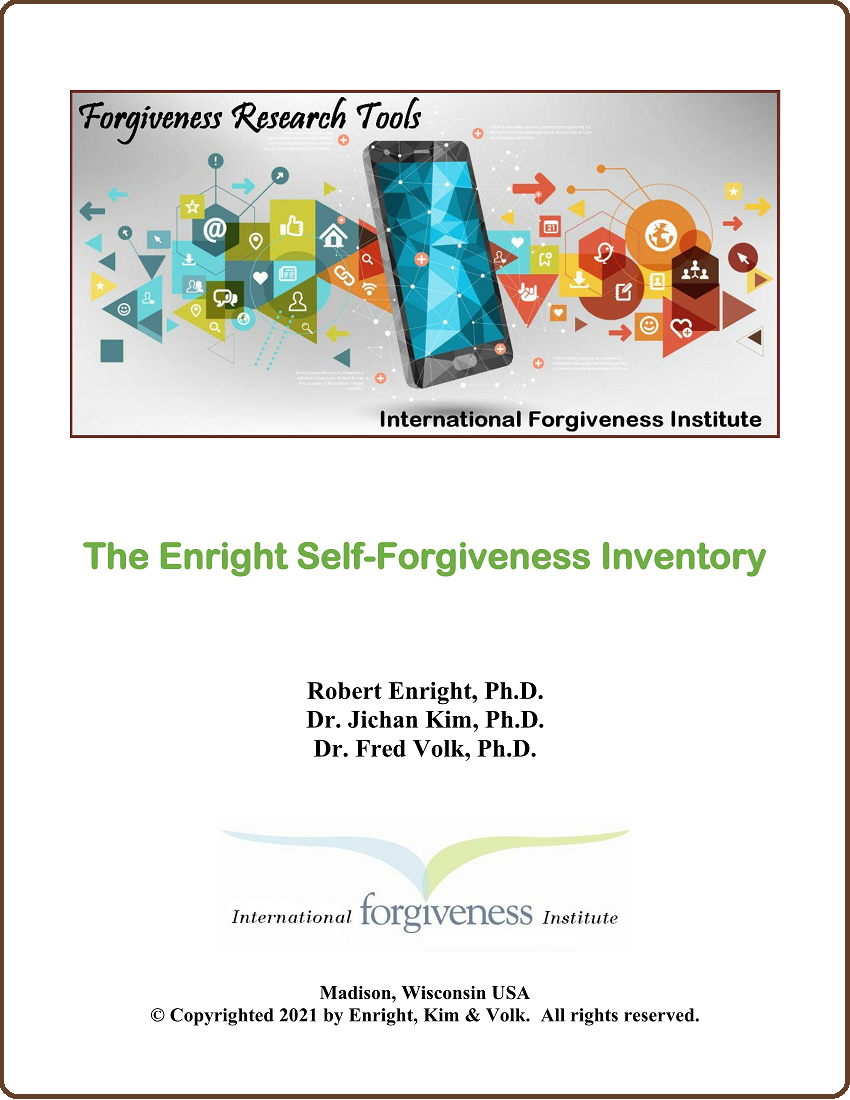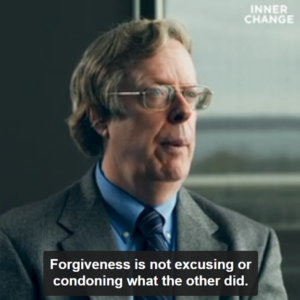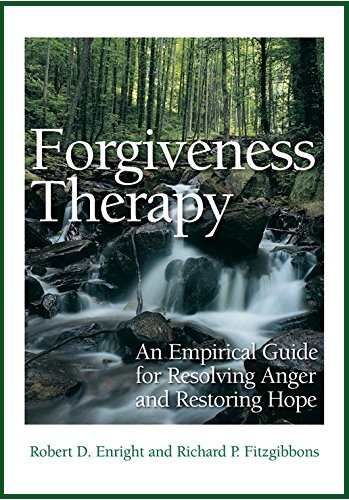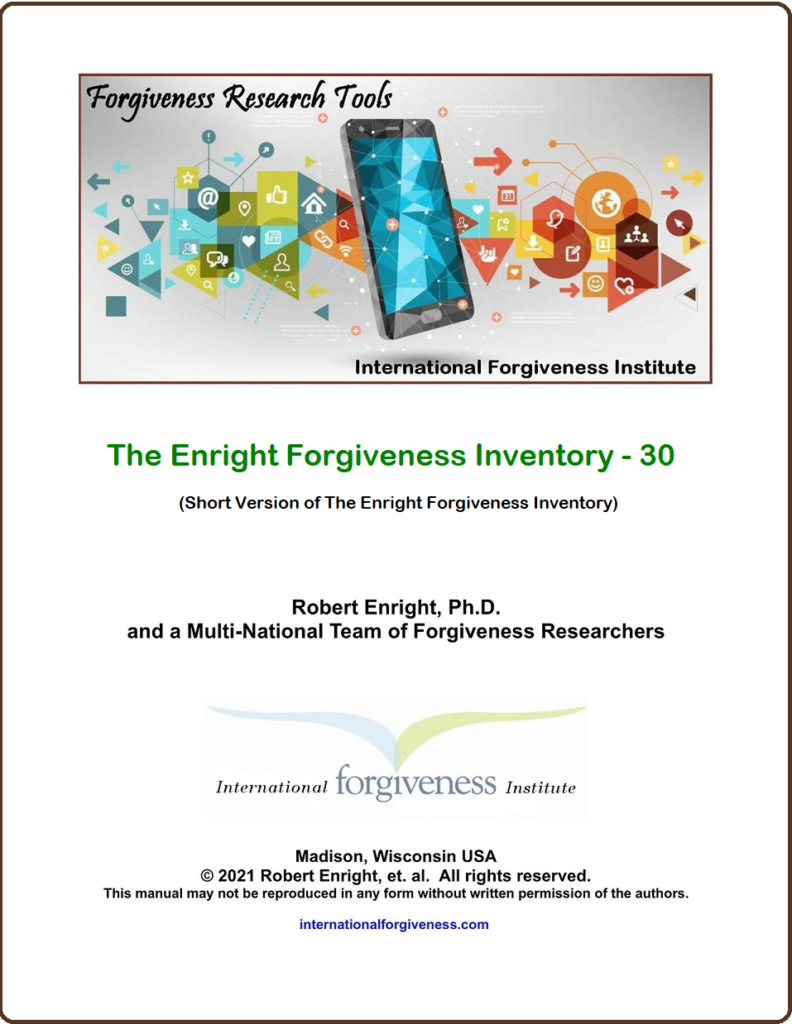IFI News
Forgiveness Research Tools Flying Out the Door and Around the World
When The Christian Science Monitor called him “the father of forgiveness research” nearly 20 years ago (Dec. 19, 2002), Dr. Robert Enright, a University of Wisconsin-Madison educational psychology professor, had just completed what the news organization called “the first study ever to show a cause-and-effect finding regarding physical health. . . and forgiveness.”
Today, as Dr. Enright nudges close to 37 years of forgiveness study and interventions, his research tools and techniques have become the preferred instruments of social scientists and researchers around the world. To stimulate even further growth in the burgeoning field, the forgiveness pioneer is giving his research tools away at no cost and with no strings attached.
On April 20 of this year, Dr. Enright announced that the non-profit educational organization he founded–the International Forgiveness Institute (IFI)–would provide his highly regarded scientific research tools absolutely free to any forgiveness researcher who requested them. In just the four months since then, the IFI has received and fulfilled orders for 252 copies of his individual tool documents from researchers in 21 foreign countries and 27 US states.
The free research tools available from the IFI and the number of copies distributed since April include:
- The Enright Self-Forgiveness Inventory (ESFI) – 76 Requests
This measure is based on the conceptualization of forgiveness as a moral virtue. The ESFI is a 30-item scale featuring six subscales with five items each. Five additional items at the end of the scale allow for measurement of Pseudo Self-Forgiveness (PSF). Although several competing self-forgiveness measures exist, Dr. Enright’s is the only one that captures the idea that self-forgiveness is a moral virtue that includes behavior toward the self.
- The Enright Forgiveness Inventory-30 (EFI-30) – 85 Requests
This tool is a shorter version of the Enright Forgiveness Inventory for Adults that has become the interpersonal forgiveness measure of choice for research professionals in the U.S. and abroad since its development in 1995. The EFI-30 reduces the number of items from 60 to 30 for the purpose of a more practical assessment of this construct. Data from the United States were used in the creation of the new measure and applied to seven nations: Austria, Brazil, Israel, Korea, Norway, Pakistan, and Taiwan to develop its psychometric validation.
- The Enright Group Forgiveness Inventory (EGFI) – 44 Requests
The EGFI has 56 items across seven subscales with each subscale having eight items. Those subscales measure a group’s motivation and values regarding forgiveness, peace, and friendliness toward the other group. The instrument is a valuable tool that could enhance peace efforts in the world. The EGFI was validated and published earlier this year by Dr. Enright and a team of 16 international researchers who collected data from 595 study participants in three different geographic and cultural settings of the world—China and Taiwan, Slovenia, and the US.
- The Enright Forgiveness Inventory for Children (EFI-C) – 47 Requests
The EFI-C is an objective measure of the degree to which a child forgives another who has hurt him or her deeply and unfairly. It is a 30-item scale similar to the 60-item adult version and is presented orally to very young children and in writing to those who can read well. Thanks to a researcher in Pakistan, the EFI-C is now available in the Urdu language—the native language of an estimated 230 million people, primarily in South Asia.
“Making these tools available to researchers at no cost is one way to grow the repository of forgiveness knowledge,” Dr. Enright explained. “This area of moral development has produced significant advancements in the areas of education, medical treatment, and therapy, so why not encourage others to help expand that information base?”
“There’s no getting around it – forgiveness is good for you and holding a grudge is not.”
-The Christian Science Monitor
- Learn more and order Dr. Enright’s free tools on the Forgiveness Research Tools page.
- Read how the EFI-30 was tested and validated in 8 countries around the world.
- Read the entire forgiveness article in The Christian Science Monitor.
This is what forgiveness is not. . .
A newly-released video interview with forgiveness expert Dr. Robert Enright called “This is what forgiveness is not” is now available to view at no cost on the website Inner Change.
The 3 min. 22 sec. video was recorded by a film production studio based in Switzerland that has cinematic staff in the US and more than a dozen other countries around the world. It is one of 13 short video segments that Inner Change has recorded with Dr. Enright and which it will release over a 2-year period. Thus far, five of the Dr. Enright interviews have been made available:

Dr. Robert Enright, founder of the International Forgiveness Institute.
- This is what forgiveness is not – Dr. Enright outlines four aspects of what forgiveness is not:
- It is not excusing or condoning.
- It is not forgetting but remembering in new ways.
- It does not necessarily mean reconciliation although it could happen if the other becomes trustworthy.
- When you forgive, you do not throw justice away, you bring it alongside.
- The Essence and Definition of Forgiveness (2 min. 15 sec.) – In this interview, Dr. Enright defines forgiveness from an interdisciplinary, cross-cultural, and interfaith perspective that basically includes what Socrates would call the “essence” or “core” of forgiveness.
. - How I Became Involved in Forgiveness Studies (4 min. 16 sec.) – Dr. Enright explains how after years of studying moral development at the behest of his employer, the University of Wisconsin-Madison, he asked himself, “What might make a difference in the world in people’s lives?” The answer he came up with in 1985 was “the virtue of forgiveness” which he saw as a way to heal from the injustices we all face.
. - The Two Paradoxes of Forgiveness (1 min. 0 sec.) – In this brief segment, Dr. Enright outlines the two paradoxes (apparent contradictions that are not contradictions) of forgiveness: 1) by forgiving, you are giving unexpected goodness to the person who hurt you; and, 2) in the process, you become stronger and emotionally healed.
- Learning to Forgive in the Small Things (3 min. 19 sec.) – By practicing forgiveness with the smaller hurts in your life, what Dr. Enright calls “exercising your forgiveness muscles,” you can become forgivingly fit and more easily handle the larger injustices in life.
The Inner Change website includes interviews with psychologists, spiritual teachers, activists, and neurologists. Those interviews are part of the website’s “Peace Video Library” where visitors can “discover what it means to be fully human, what resources we all share, how we can tap into our full potential as humans.” Other website features include musical meditation segments following each video and a collection of more than 30 music videos all with original songs recorded at Chernobyl (the site of the 1986 nuclear power plant disaster in the Soviet Union) and the nearby ghost town of Prypiat in Northern Ukraine.
Forgiveness Interventions Help Depressed Adolescents Cope and Thrive
Ample research has shown that depression is a significant and growing problem for today’s adolescents. Depression can impair a teenager’s cognitive functioning (i.e., thinking, reasoning, etc.), relationships with parents and peers, academic performance, and for cases of severe depression may even result in suicide attempts. Moreover, adolescent depression is also associated with poor outcomes in adulthood such as low-income levels, low educational aspirations, and high substance use.
Now, two international education and forgiveness specialists believe they may have uncovered one of the keys to reducing adolescent depression and major depressive disorder (MDD). According to the researchers, their first-of-its-kind study has shown that promoting social skills such as responsibility and self-control could be “particularly salient for the prevention of adolescent depression.”
The new study, A Longitudinal Analysis of Social Skills and Adolescent Depression: A Multivariate Latent Growth Approach, was published in the current issue of the International Journal of Psychological Research (the official publication of the Faculty of Psychology at San Buenaventura University in Medellin, Colombia.). The study authors included Dr. Zhuojun Yao, an educational psychologist and lecturer at Soochow (Suzhou) University in Suzhou, China, and Dr. Robert Enright, of our International Forgiveness Institute.
BACKGROUND: Adolescence is a period of increased vulnerability to depression because of complex changes in biology, cognition, and social domains. According to the 2019 National Survey on Drug Use and Health (NSDUH), 3.5 million adolescents aged 12 to 17 in the United States (14.4% of the total) had at least one Major Depressive Episode (MDE), and 70% of these adolescents had an MDE with severe impairment in 2018.
Most clinical depression among children starts in middle adolescence (ages 15-18) and is much higher for those in that age group than for those in early adolescence (ages 13-15). Although there are substantial empirical research studies demonstrating the association between social skills and adolescent depression, the authors of this study could not locate a single scientific work investigating how the change in social skills influences the change in depression from early to middle adolescence.
THE STUDY: To address this gap in fundamental knowledge, the researchers in this study questioned how changes in social skills (cooperation, assertion, responsibility, and self-control) influence changes in depression from early to middle adolescence. Using internationally respected measurement tools, the authors measured both social skills and depression in 1,064 participants (half boys, half girls). Those participants were drawn from a separate longevity study by the National Institute of Child Health and Human Development Study of Early Child Care and Youth Development (NICHD SECCYD) that ran from 1991 through 2008.
STUDY RESULTS: According to the study authors, adolescents who had more increase in responsibility and self-control from 5th grade to 9th grade tended to experience a slower increase in depression; while adolescents who had more reduction in cooperation and assertion from 5th grade to 9th grade tended to experience a faster increase in depression. Overall, the results suggest that responsibility in early adolescence may decrease adolescent depression by protecting adolescents from risk-taking and problematic behaviors in middle adolescence.
“When used in association with other therapeutic modalities. . .the psychotherapeutic
use of forgiveness can resolve the anger associated with depressive disorders.”
Dr. Robert Enright
IMPLICATIONS FOR FORGIVENESS: Interventions to reduce adolescent depression are becoming more important with each passing day because, as outlined above, adolescent depression also is associated with poor outcomes in adulthood. A 2009 study revealed that at least 27 million Americans take antidepressants, nearly double the number (13.3 million) who did so in the mid-1990s (Olfson & Marcus, 2009). Less understood is the fact that approximately 80% of adult mental disorders begin during childhood and adolescence (Kim-Cohen et al., 2003) and typically include an intense emotional state of anger.
 “Anger begins in early childhood and later extends to relationships with significant others, particularly those one wants to trust,” Dr. Enright writes in Forgiveness Therapy, the widely-heralded forgiveness intervention manual he authored with psychiatrist Dr. Richard Fitzgibbons. “Anger from childhood hurts and disappointments with parents and others can be unresolved and later misdirected unconsciously at others. [page 108]
“Anger begins in early childhood and later extends to relationships with significant others, particularly those one wants to trust,” Dr. Enright writes in Forgiveness Therapy, the widely-heralded forgiveness intervention manual he authored with psychiatrist Dr. Richard Fitzgibbons. “Anger from childhood hurts and disappointments with parents and others can be unresolved and later misdirected unconsciously at others. [page 108]
“Once anger develops, three options are available for addressing this powerful and complex emotion: denial, expression (active or passive-aggressive), and forgiveness. If the anger is resolved through a forgiveness process, it can facilitate the healing of the associated sadness, depression and the tendency to ruminate over past hurts.” [page 108]
According to Dr. Enright, “This study provides yet another compelling reason why we need Forgiveness Education in our schools NOW.”
This study on adolescent depression is just one of the many research projects undertaken by Drs. Zhuojun Yao and Robert Enright. Others include:
- The influence of moral stories on kindergarteners’ sharing behavior
- The role of consequences of moral action in maximizing moral elevation
- Belief in altruistic human nature and prosocial behavior: a serial mediation analysis
- The Link Between Social Interaction with Adults and Adolescent Conflict Coping Strategy in School Context
ENRIGHT FORGIVENESS INVENTORY, A STANDARD MEASUREMENT TOOL USED AROUND THE WORLD, NOW AVAILABLE IN SHORTER VERSION
An eight-nation study designed to test the applicability and sensitivity of the new short form of the Enright Forgiveness Inventory, the EFI-30, has demonstrated that the new instrument is a reliable and valid research tool that can be used across widely diverse cultures.
The Enright Forgiveness Inventory-30 (EFI-30) is a shorter version of the Enright Forgiveness Inventory for Adults (EFI) that was the first forgiveness measurement tool developed by Dr. Robert Enright and his Human Development Study Group at the University of Wisconsin-Madison. The EFI is an objective measure of the degree to which one person forgives another who has hurt him or her deeply and unfairly. 
After its development in 1995, the EFI quickly became a central component of forgiveness research both in the U.S. and internationally. It has been translated from English (original language) into Brazilian-Portuguese, Chinese, German, Hebrew, Korean, Dutch, and other languages. Its reliability and validity have been exhibited in Master’s theses, doctoral dissertations, and empirical articles published around the world.
The new study, Validating the Enright Forgiveness Inventory-30, was published this month in the European Journal of Psychological Assessment. It outlines the process and rationale used by the study’s authors to create a shorter version of the EFI (30 items instead of the original 60) that could convey the same meaningful information on the degree of interpersonal forgiveness across the domains of affect, behavior, and cognition. In other words, they developed a smaller, less time-consuming scale that is still accurate and reliable.
Data from the U.S. were used in the creation of the new measure and applied to seven other countries: Austria, Brazil, Israel, South Korea, Norway, Pakistan, and Taiwan. Results from the study provided the psychometric evidence for the reduced version of the EFI-30 across cultures. (NOTE: psychometrics is the branch of psychology that deals with the design, administration, and interpretation of quantitative tests for the measurement of psychological variables such as intelligence, aptitude, and personality traits.)
“While the EFI is particularly relevant when it accurately assesses people with low degrees of forgiveness,” Dr. Enright said in comparing the two research tools, “the EFI-30 has still demonstrated its effectiveness to distinguish particular cultural social norms that apply to the behavioral expression of forgiveness.”
According to Dr. Enright, the new EFI-30 tool is suitable to verify affective, behavioral, and cognitive changes in people who choose forgiveness for improvement of their well-being. He adds that it is designed to assess six psychological stances of victims toward offenders: positive affect, negative affect, positive behavior, negative behavior, positive cognition, and negative cognition.
The EFI-30 and other highly-regarded forgiveness research tools developed by Dr. Enright, co-founder of the International Forgiveness Institute (IFI), are now available absolutely free to any forgiveness researcher who requests them. To learn more about the tools, see the IFI website article Coveted Forgiveness Research Tools Now Available at No Cost. To request Research Tools for your own use, see Dr. Enright’s Forgiveness Research Tools.
New Study Shows Forgiveness Intervention can Improve Mental Health of Grieving Parents
In the first ever true experimental study of its kind, researchers have demonstrated the effectiveness of an educational forgiveness intervention on improving the mental health of parents grieving the loss of a child. The research was conceptualized and done by Lucia Záhorcová, a psychologist at Trnava University in Slovakia. The forgiveness intervention was developed by Dr. Robert Enright, co-founder of the International Forgiveness Institute, who also directed the study in the country that was once part of Czechoslovakia.
The pilot study results showed that participants in the experimental group (who received the forgiveness intervention), compared to those in the control group, achieved:
- Statistically greater improvement in forgiveness towards others and in self-forgiveness in both the post-test and the follow-up test conducted four months after the end of the intervention;
- A greater decrease in depression in both the post-test and follow-up test;
- A greater decrease in anxiety and anger in the post-test; and,
- Higher improvement in the post-traumatic growth in the follow-up test.
“The death of a child is a one of the most devastating and traumatic experiences a parent can endure,” according to Dr. Enright. “That’s why we wanted to determine if forgiveness could be a positive influence in reducing a parent’s depression, anxiety and anger just as it has been demonstrated in our studies with other clinical populations like incest survivors, emotionally-abused women, and post-abortion men.”
Dr. Enright said the study in Slovakia was the first ever forgiveness intervention with grieving parents in which a control group was used. It included 21 parents randomly assigned to the experimental group (in which the educational forgiveness intervention occurred) and 21 to the control group (in which a psycho-education grief intervention with a humanistic approach took place). All the parents were grieving the loss of a child older than three years of age.
“The study demonstrated that the forgiveness intervention definitely resulted in mental health improvements for parents grieving the loss of a child,” Dr. Enright stated. “The ability to forgive another person, perhaps even the murderer of their child, can positively influence the mental health of a bereaved parent.”
The Effectiveness of a Forgiveness Intervention on Mental Health in Bereaved Parents – a Pilot Study, was published on June 21, 2021, in OMEGA – Journal of Death and Dying. In addition to Dr. Enright (Dept. of Educational Psychology, University of Wisconsin-Madison) the study researchers included Lucia Záhorcová and Peter Halama, both in the Dept. of Psychology at Trnava University in Trnava, Slovakia. The three also teamed up for a 2019 study of 84 grieving parents called Forgiveness as a Factor of Adjustment in Bereaved Parents.



